The council that employed an abuser to look after children
- Published
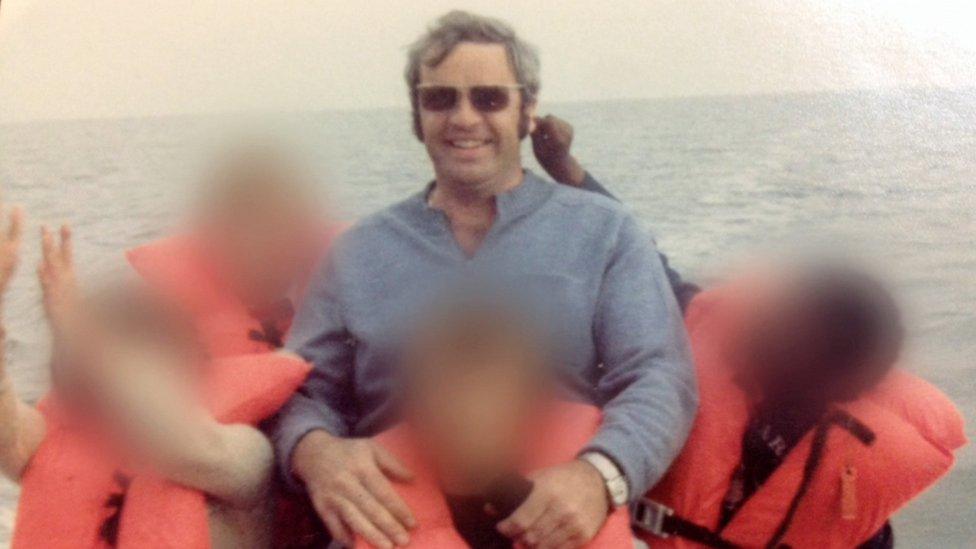
John Carroll - convicted for sex offences committed while working as a care worker in Lambeth
Why have successive investigations failed to establish the full truth behind sexual abuse at care homes in a south London borough?
Justice Lowell Goddard will this month begin preliminary hearings into historical allegations that hundreds of children were abused in a wide range of institutions across the UK.
Establishing the truth about the number of paedophiles who looked after, or had inappropriate access to, children in the care of Lambeth Council in south London is one of her priorities, external.
In the 1970s, 80s and 90s, Lambeth had it all. Local politics in south London was dominated by big characters with radical ideas. Lambeth was a melting pot - and it became a byword for corruption, fraud and abuse. Abuse, that is, of children who had been placed in the care of the local authority, where they should have been safe.
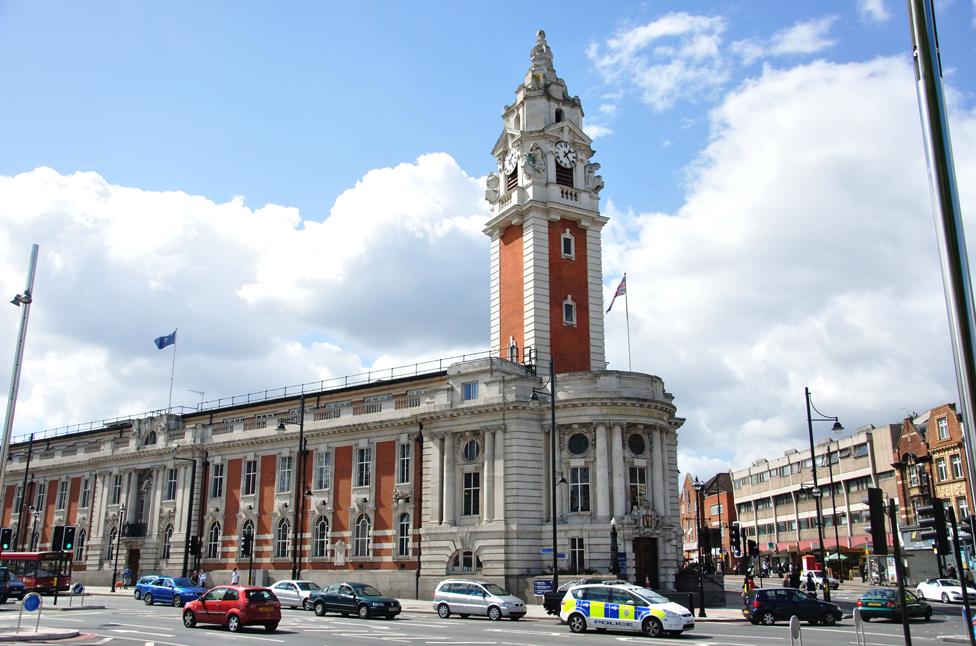
Lambeth town hall in south London
Over the last 18 months, Newsnight has spoken to former police officers, officials and survivors who have expressed deep concerns about what went on in Lambeth - not just during the period when children were being abused, but as successive police investigations were launched.
Between 1974 and 1994, more than 14,000 children passed through the care of Lambeth social services, and more than 7,000 were placed in its children's homes. But during the same period, a number of child abusers were employed in Lambeth's children's homes, some of whom have been prosecuted.
The most recent was Les Paul, convicted (for the third time) in January of abusing four boys in his care in Lambeth in the 1980s and jailed for 13 years.
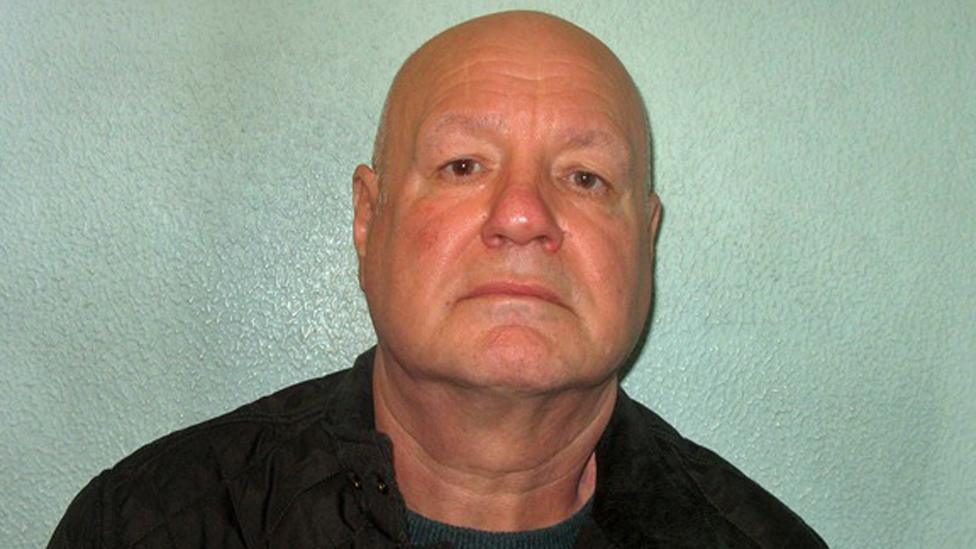
Les Paul was jailed for 13 years for abusing four boys in his care
Goddard recently said her inquiry would examine events at five children's homes in Lambeth - Angell Road, Monkton Street, Ivy House, South Vale, and Shirley Oaks. These five care homes were places where children were exposed to sexual abuse and cruelty - Monkton Street and Ivy House were homes for children with special needs.
All of Lambeth's homes had been closed by the mid-1990s but by then, they had been infiltrated by paedophiles for at least 30 years - and survivors are still coming forward.
Documents obtained by Newsnight show investigators believed there were at least seven men who were abusing children at Angell Road alone. This was regarded as an "inner circle". The suspicion was that many more were involved.

A long-running police inquiry - Operation Middleton, external - which looked at all the borough's children's homes over a 20-year period, concluded there were at least 35 men and women who had abused children. In its final report, investigators said 16 suspected abusers died before the inquiry began - and another 19 could not be identified.
This figure does not include the men who have been arrested and charged. One killed himself on the eve of his trial. Add those to the total and there were up to 50 paedophiles abusing children in Lambeth's homes.
The recently set-up Shirley Oaks Survivors Group, external believes that is a severe underestimate. The group already has more than 600 members. Many of the survivors do not trust the police and are undecided about whether they will ever feel confident enough to come forward.
Goddard will hold a preliminary hearing on 24 March at the High Court when her team will set out how it intends to look at Lambeth. But she has already said her team will probe "the extent to which there was a culture within the council which inhibited the proper investigation, exposure, prevention, and reparation for child sexual abuse".
Over the years there have been a number of inquiries - by the council, the police, and independent experts - into Lambeth. But they were all limited in scope. None of them attempted to tell the whole story, to pull all the strands together. That is what Goddard is attempting to do.

Judge Justice Lowell Goddard
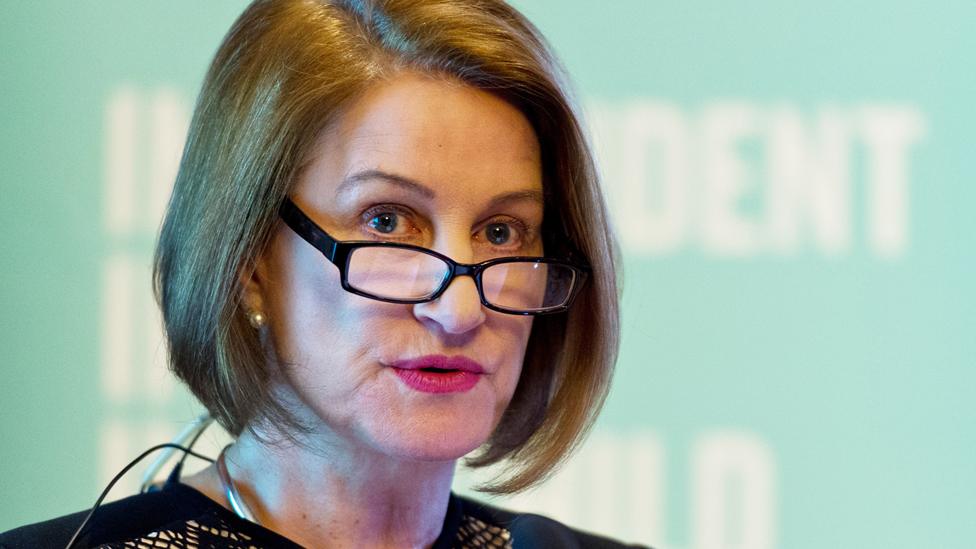
Born in Auckland, New Zealand, she is leading the Independent Inquiry into Child Sex Abuse into historical child sex abuse in England and Wales
Third person to be appointed chair of the inquiry since it was set up in 2015
Serving judge of the High Court of New Zealand and UN committee member with experience of working with victims of sexual assault
In 2007, she was appointed chairwoman of New Zealand's Independent Police Conduct Authority

Survivors believe this might be the last chance of unravelling what went on in the borough. Goddard's team is already asking questions that will take her into deeply sensitive territory.
Nobody doubts that paedophiles were operating seemingly at will in Lambeth - the question that remains is whether successive inquiries unravelled the full extent of the abuse, and to what degree this behaviour was coordinated by a large group of abusive men.
How did Lambeth find itself so compromised?
In the days when police checks were not as rigorous as they are today, councils were occasionally unlucky enough to employ predatory paedophiles. Lambeth was unlucky time and again, over 20 years, in several children's homes. Was that just negligence? Or was something else at play?
One man - Michael John Carroll - will be central to the investigation.
Goddard says she will examine "the involvement of Michael Carroll in the sexual abuse of children in the care of the council; his recruitment and continued employment by the council; and the circumstances surrounding his application to foster a child and the council's subsequent account to the Clough Inquiry".
Carroll is better known by his second name, John. He was employed by Lambeth in 1978, became manager of the Angell Road home in 1981, and continued to run the home in Brixton until he was sacked for fiddling his expenses in late 1991.
To begin with, Carroll was considered an exemplary manager who ran a model home. But he had a reputation as a bully to other staff - and as a disciplinarian with the children in his care, who were as young as three.
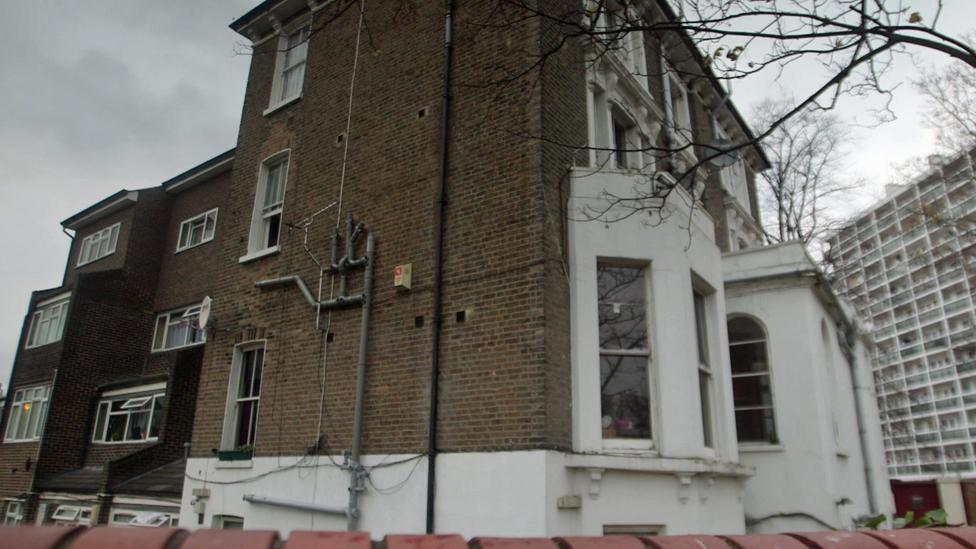
The former Angell Road care home where Carroll was manager
Lambeth knew Carroll was a problem long before he was eventually dismissed. In 1986, it discovered something that should have excluded him from working with children. Carroll already had a conviction for child abuse - which he hadn't disclosed when he had applied for a job in Lambeth. But the conviction, and his failure to disclose it, did not lead to his dismissal.
In mid-1986, three of Lambeth's most senior officials held a secret disciplinary hearing, and decided to leave him in post. And when Carroll asked if he could turn Angell Road into a centre to provide therapy for victims of child abuse, Lambeth agreed. The police even sought advice from him when they were investigating alleged child abuse in another home, South Vale.
When Carroll was sacked in 1991, the press discovered he had a previous conviction for child abuse - and it provoked a huge row within the council. The then chair of the social services committee demanded an inquiry to look at why he hadn't been sacked in 1986. It was run by Richard Clough, then general secretary of the Social Care Association.
In June 1993, Clough ruled that Lambeth should not have left Carroll in charge of children. He pointed out: "It is now unlikely that a schedule one offender, anywhere, would be permitted to remain in employment in such a sensitive post."
Lambeth was supposed to disclose to this inquiry everything it knew about Carroll. In particular, they were looking at claims Lambeth lobbied on Carroll's behalf when he asked councils for permission to foster children of his own.
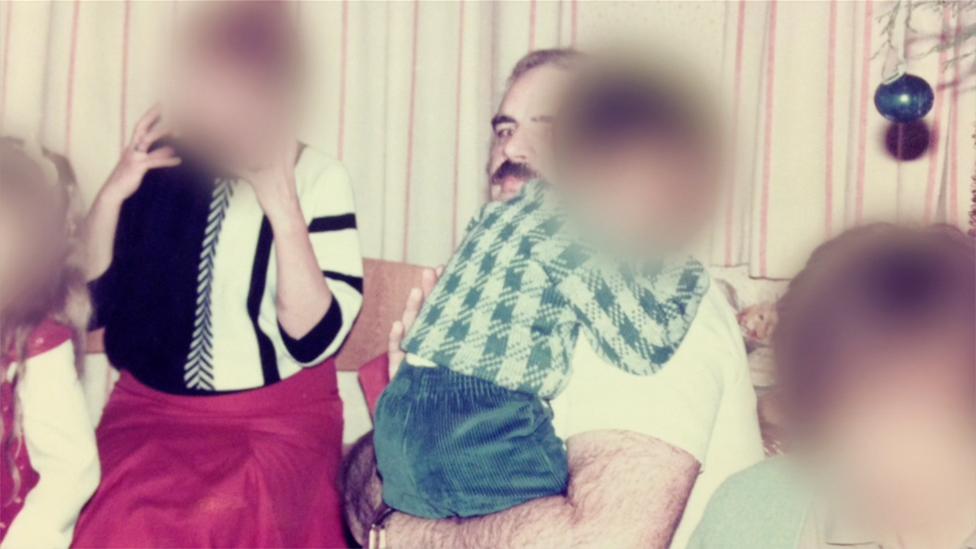
Carroll, pictured during his employment by London Borough of Lambeth
Carroll approached another south London borough, Croydon, for approval, but officials turned him down flat when they discovered he was already a convicted paedophile. Another London borough, Wandsworth, had the same reaction. And Southwark too.
Clough was told about Carroll's approaches to Croydon and Wandsworth. But he wasn't told anything about Southwark.
Newsnight has spoken to two witnesses who say Lambeth officials pressured Southwark to reverse its decision to refuse Carroll's fostering application. This culminated in a face-to-face meeting, which ended in an almighty row.
Carroll was arrested in 1998 - and a year later a he was convicted of 35 offences, external, including buggery of young boys. Another 40 charges were left on file. He was sentenced to 10 years in jail and served five.

Michael John Carroll
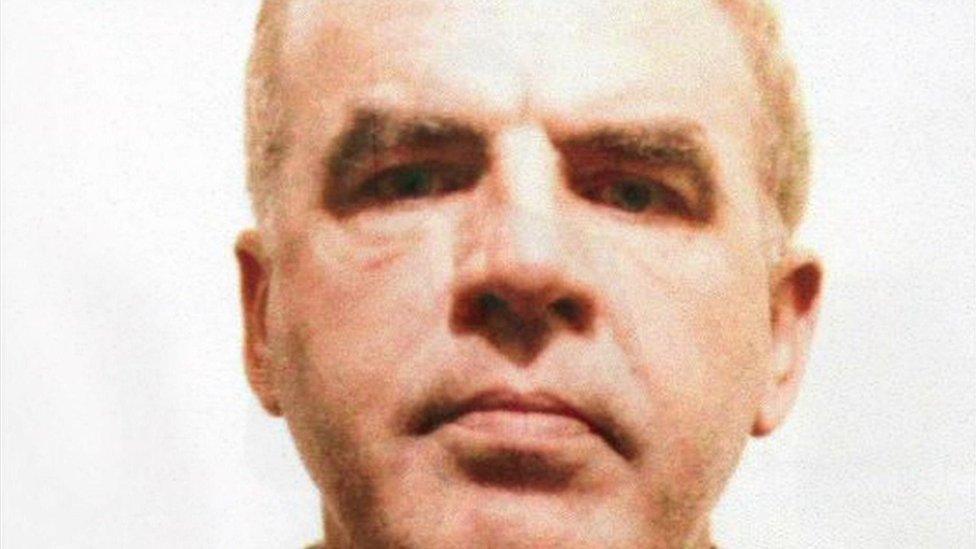
A police shot of Carroll at the time of his conviction in 1999
In charge of Angell Road children's home in Lambeth 1981-1990
In 1999, plead guilty to 35 charges of indecent assault and buggery of young boys in the 1970s and 80s in Merseyside and London
Had originally pleaded not guilty to 70 offences
Sentenced to 10 years in prison, released after five years; now lives in the Midlands

Carroll wasn't the only paedophile working in Angell Road.
Another was Steven Forrest - and Goddard has made him another strand of her inquiry. Forrest was a social worker and a team leader from January 1983 until he died of Aids in 1991. A year after his death, a boy who had been in his care began to talk about abuse at the home.
At this stage, Lambeth had known for six years that Carroll had a previous conviction for child abuse, but nobody at the council saw the complaint about Forrest as grounds to investigate further. Nothing was done.
In 1996, the boy, who was now 16 and living in Wales, told a social worker he had been raped by Forrest. The information was passed to Lambeth - but again, it failed to launch an investigation.
This only came to light two years later when Merseyside Police arrested John Carroll and approached Lambeth for information about him and the children in Angell Road. Only then, under pressure from the police, did Lambeth acknowledge that an allegation of child abuse had already been made about Forrest - and nothing had been done.
Detectives were aghast at the council's failure to act. Officers also thought the boy who had been abused had a right to know that Forrest had died of Aids. But Lambeth resisted telling him.
The furore around this led to another inquiry, led by John Barratt, external. He concluded in 1999 that "shocking" levels of organisational incompetence were partly responsible for Lambeth's inaction. But he said he was unable to fully comprehend why Lambeth had done nothing: "Even when it was pointed out that nothing had happened, still nothing happened."

Some of the inquiries into sex abuse in Lambeth
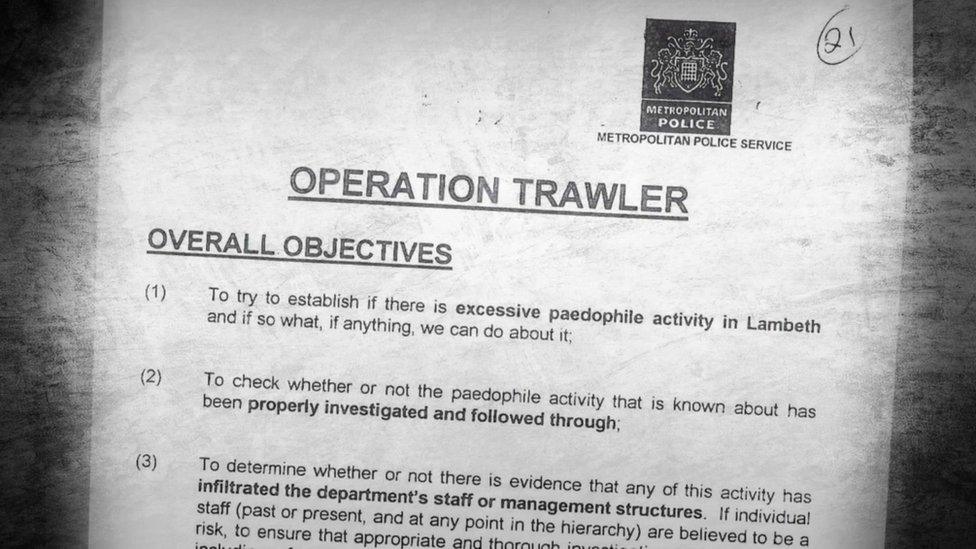
Operation Trawler (July-November 1998) - Led by Detective Chief Inspector Clive Driscoll, investigated possible sex abuse in Lambeth by John Carroll, who had run a children's home there
Operation Middleton (November 1998-July 2003) - Led by Detective Superintendent Richard Gargini after removal of Driscoll, covering allegations of child abuse across all of Lambeth's children's homes over 20 years; team included specially-trained social workers alongside police, known as Child Abuse in Lambeth Team (Chile)
Independent Inquiry into Child Sex Abuse (March 2016-ongoing) - Led by Justice Lowell Goddard, reviewing past institutional failures in England and Wales and investigating whether "public bodies and other non-state institutions have taken seriously their duty of care to protect children from sexual abuse"

This may not have been the only case where complaints of abuse were ignored in the early 1990s.
Newsnight has been told that a girl accused Carroll of abusing her in Angell Road. Senior officials knew about this by 1993, but nothing was done. Files which might have had potentially important information about the homes were lost or destroyed. Documents were misplaced or suddenly turned up without warning.
In one confidential document, an investigator said: "There have been efforts made to frustrate [our] works, and files have had to be removed with police and it is believed that some people have interest in files not being investigated."
The borough had been "effectively lawless", one very senior Lambeth official says.
Another official, former assistant director Nigel Goldie, says: "It was quite clear that staff who were paedophiles were recruiting each other and supporting each other and tending to gather in certain homes."
There was an intimidating atmosphere in Lambeth at the time the abuse was going on - and this continued when police began their investigations.
Goddard's inquiry will look at "allegations that individuals with information about the sexual abuse of children in the care of the council were the subject of intimidation and potentially lethal violence; and allegations that there was inappropriate interference in law enforcement investigations into the sexual abuse of children in the care of the council".
One woman received threatening phone calls when she began to tell the police what she knew. She claimed someone tried to run down her daughter. A police officer was threatened too. A caller told him he knew where he lived - and mentioned the names of his children.
And there is the unsolved murder of Bulic Forsythe, external.
He was a senior manager in Lambeth's housing department when he was murdered in February 1993. His death is now being reinvestigated by Scotland Yard. Those who knew Forsythe say he was worried about things he had discovered - and was considering going public. But nobody has ever been able to establish what he had discovered or whether this provoked his murder.
Witnesses told the police they saw three men walking away from Forsythe's flat, carrying bags of documents and files - shortly before his home was set alight. Forsythe's body was inside - his skull had been fractured.
Now retired, Det Insp Clive Driscoll had a 34-year career in the Met
Scotland Yard is also re-investigating what happened in late 1998 when an officer, Detective Inspector Clive Driscoll, was removed from his post in Lambeth. Driscoll had set up an investigation called Operation Trawler which was looking at Carroll and his behaviour in Angell Road.
Newsnight has obtained copies of confidential documents that set out the information he was gathering - with names of potential witnesses.
Multiple sources have told the BBC that Driscoll had a number of people he wanted to contact. One of them was a government minister, Paul - now Lord - Boateng.
He had been named by a social worker, Teresa Johnson, as someone who had visited the home while Carroll was manager.
There is no suggestion Boateng had done anything wrong. And he has told the BBC he has no recollection of going to Angell Road or of meeting John Carroll. He says he would have been happy to help the police if he had been approached.
"As a campaigning youth justice lawyer in the 1970s and 1980s, I acted for many young people in care, met many of their social workers and visited many youth facilities in the course of my work."
But might Boateng have had information that could help Driscoll's inquiry? The detective wanted to meet him to find out.
Before Driscoll had a chance to do that, he was axed. He says he was told he was being removed - and disciplined - because he was indiscreet about his plans.
But could it have been that approaching a minister was simply too sensitive?
None of this seems at all clear - which has left many in Lambeth perplexed about what happened behind the scenes to prompt Driscoll's dismissal.
Subscribe to the BBC News Magazine's email newsletter to get articles sent to your inbox.
